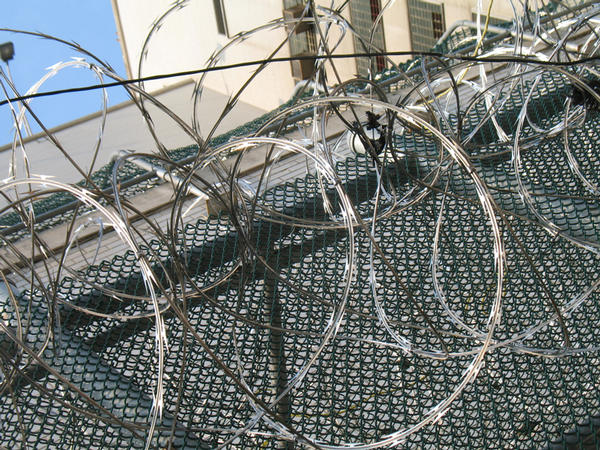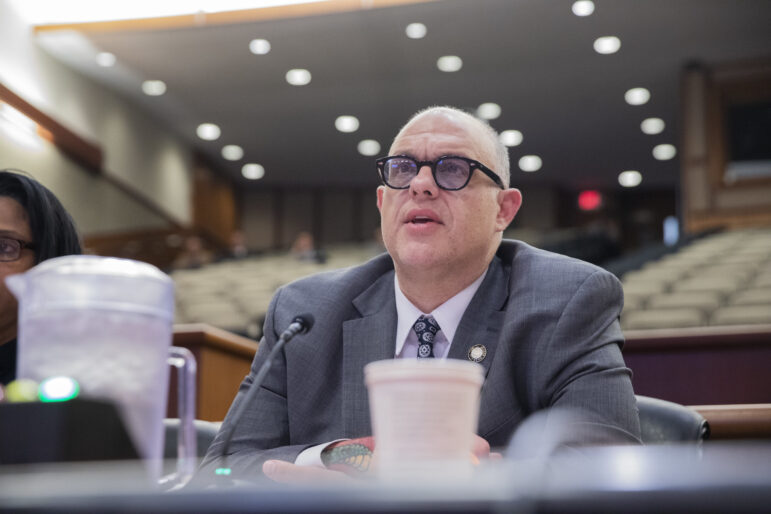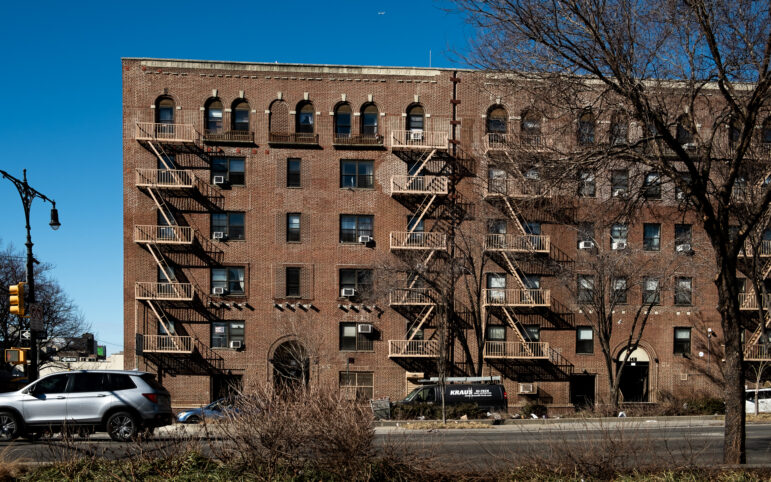
Photo by: Jarrett Murphy
Ourside the lockup at Queens Criminal Court.
New York City is an increasingly safe city with fewer and less serious crimes reported now than in prior decades. With safer streets, the city’s jail population has also declined considerably. But even as the size of the inmate population continues to decrease, the number of inmates with diagnosed mental illness in NYC jails is on the rise. Today, the mentally ill make up more than a third of the department’s average daily population, and there is every indication that they will continue to comprise a large segment of the men and women in jail if we as a city don’t take additional efforts to reverse this trend.
This challenge is also our opportunity to further improve the safety and well-being of all who live, work and visit here. The very good news is that this city’s justice and health and social services community has a well deserved reputation for innovation and has committed to working together to reverse this pattern, so that individuals with mental illness can get the help they need sooner in jail and receive the additional support they may need to minimize their contact with the criminal justice system in the community after their release.
Increasingly, it appears that jails and prisons are becoming mental health treatment centers of last resort for individuals involved in the justice system around the U.S., facilities whose primary mission is not mental health treatment. Here in NYC, both men and women with a mental health diagnosis are admitted to jail far more frequently for the same offenses than people who are not mentally ill, women in jail are twice as likely as men in jail to have mental illness, and nearly half of the mentally ill return to jail within a year. Mentally ill inmates also remain in jail as much as three times as long. They are also disproportionately involved in untoward incidents within the jails throughout their incarceration.
A challenge as complex as this demands a multi-faceted response. To that end, last month Mayor Bloomberg convened a Steering Committee of public and private partners to launch the Citywide Justice and Mental Health Initiative, ably co-led by Deputy Mayor Linda Gibbs and Criminal Justice Coordinator John Feinblatt. Funds for this initiative are provided by the US Department of Justice and the Langeloth Foundation. The Council of State Governments is coordinating its research. The analysis, formulation of recommendations, and the execution of reforms that will quickly follow will be the product of a joint effort among the NYC Departments of Correction, Health and Mental Hygiene, Probation, and Homeless Services, the Health and Hospitals Corporation, Human Resources Administration and the Administration for Children’s Services in partnership with the judiciary, the offices of the City’s district attorneys, legal services, DCJS, NYS Office of Mental Health and community-based organizations.
The work of the Steering Committee is straightforward and its pace is quite brisk. Using a cross-disciplinary lens, city and state data will be analyzed and interviews with both stakeholders and staff on the front lines of the criminal justice and health systems will be conducted this fall, to identify the factors that influence the arrests and referrals to jail of mentally ill inmates. We will use the data to pinpoint what is driving the long lengths of stay in jail and high rates of relapse and readmissions to jail. The vital intelligence that is collected will be used to formulate recommendations next spring. When completed, there will be a plan of action specifically designed to identify, intervene and divert more often and more effectively the men and women in New York City with mental illness who are at risk of offending and re-offending. We will immediately embark upon its implementation.
Every city and state in the United States is struggling with these very same issues involving the incarcerated mentally ill. We hope that the findings that emerge as a result of this project here in New York City will inform policymakers around the country.








